Filter by
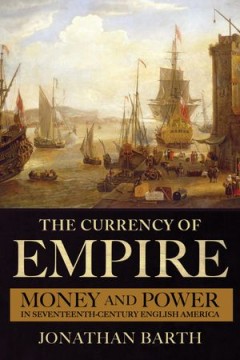
The Currency of Empire : Money and Power in Seventeenth-Century English America
The export-oriented mercantile economy promoted by the English Crown, Barth argues, directed the plan for colonization, the regulation of colonial commerce, and the politics of empire. The imperial project required an orderly flow of gold and silver, and thus England's colonial regime required stringent monetary regulation. As Barth shows, money was also a flash point for resistance; many colon…
- Edition
- -
- ISBN/ISSN
- 9781501755781
- Collation
- -
- Series Title
- -
- Call Number
- 650
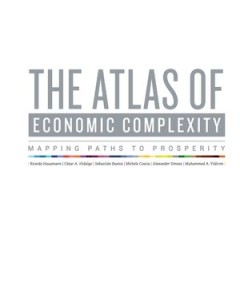
The Atlas of Economic Complexity
Maps capture data expressing the economic complexity of countries from Albania to Zimbabwe, offering current economic measures and as well as a guide to achieving prosperity Why do some countries grow and others do not? The authors of The Atlas of Economic Complexity offer readers an explanation based on "Economic Complexity," a measure of a society's productive knowledge. Prosperous societies …
- Edition
- -
- ISBN/ISSN
- 9780262525428
- Collation
- -
- Series Title
- -
- Call Number
- 650
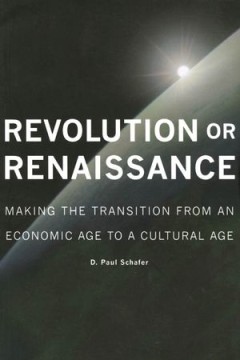
Revolution or Renaissance
In Revolution or Renaissance, D. Paul Schafer subjects two of the most powerful forces in the world – economics and culture – to a detailed and historically sensitive analysis. He argues that the economic age has produced a great deal of wealth and unleashed tremendous productive power; however, it is not capable of coming to grips with the problems threatening human and non-human life on t…
- Edition
- -
- ISBN/ISSN
- 9780776606729
- Collation
- -
- Series Title
- -
- Call Number
- 650
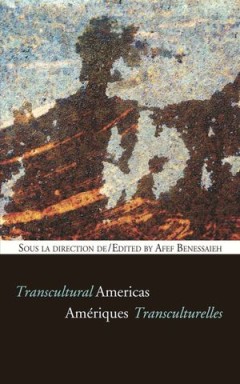
Amériques transculturelles - Transcultural Americas
Transculturality is a new way of viewing culture that sees cultures not as separate islands that are easily differentiated from one another, but as connected and interacting webs of meaning and practice. The Americas in particular offer many examples of transcultural identities that do not fit easily into one national or ethnic mold: Chicanos, Franco-Ontarians, Creoles, and second and third gen…
- Edition
- -
- ISBN/ISSN
- 9782760307216
- Collation
- -
- Series Title
- -
- Call Number
- 650

Transformative Communication Technologies
This booklet documents the 36th Boehm-Bawerk Lecture, presented by Prof. Robin Mansell on October 31, 2017 as a ceremonial opening ceremony for the Institute of Media, Society and Communication at the Faculty of Social and Political Sciences
- Edition
- -
- ISBN/ISSN
- 9783903187146
- Collation
- -
- Series Title
- -
- Call Number
- 650
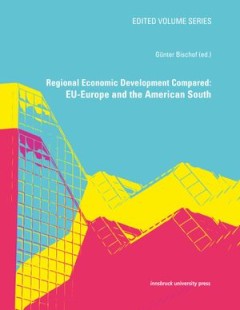
Regional Economic Development Compared
Comparing economic development in a regional context both in the South of the United States and in the European Union today raises many fascinating questions. How much money in the form of tax credits and subsidies should communities and states invest to attract foreign investors in the U.S.? Should individual states and communities in the U.S. commit public funds in the form of tax money and t…
- Edition
- -
- ISBN/ISSN
- 9783902936424
- Collation
- -
- Series Title
- -
- Call Number
- 650
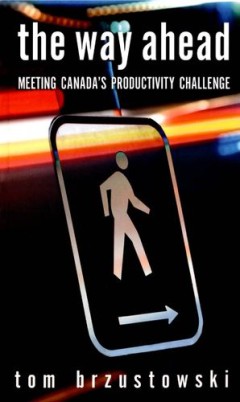
The Way Ahead
Canada is a prosperous country, but this prosperity is being stressed by demographics, pressures on the public purse, and low productivity growth. To maintain the nation's high quality of life, prosperity must increase while remaining sustainable. Combining Tom Brzustowski's extensive knowledge of government, industry, and academia, The Way Ahead, articulates a strategy for moving the Canadian …
- Edition
- -
- ISBN/ISSN
- 9780776606699
- Collation
- -
- Series Title
- -
- Call Number
- 650
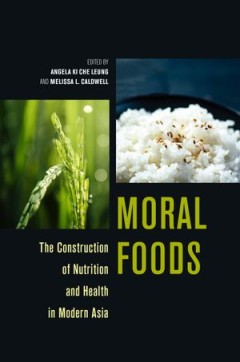
Moral Foods: The Construction of Nutrition and Health in Modern Asia
Moral Foods: The Construction of Nutrition and Health in Modern Asia investigates how foods came to be established as moral entities, how moral food regimes reveal emerging systems of knowledge and enforcement, and how these developments have contributed to new Asian nutritional knowledge regimes. The collection’s focus on cross-cultural and transhistorical comparisons across Asia brings into…
- Edition
- -
- ISBN/ISSN
- 9780824876708
- Collation
- -
- Series Title
- -
- Call Number
- 641.1 MOR m
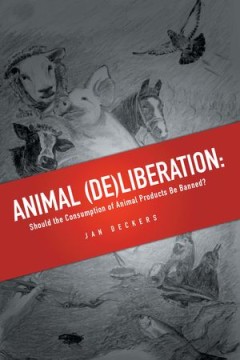
Animal (De)liberation : Should the Consumption of Animal Products be Banned?
In this book, Jan Deckers addresses the most crucial question that people must deliberate in relation to how we should treat other animals: whether we should eat animal products. Many people object to the consumption of animal products from the conviction that it inflicts pain, suffering, and death upon animals. This book argues that a convincing ethical theory cannot be based on these importan…
- Edition
- -
- ISBN/ISSN
- 9781909188839
- Collation
- -
- Series Title
- -
- Call Number
- 650
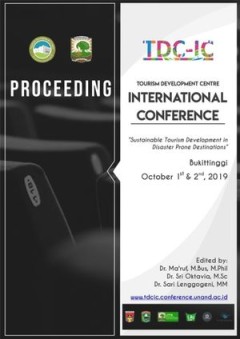
Proceedings of Tourism Development Centre International Conference
This proceeding contains peer-reviewed papers from the Tourism Development Centre International Conference (TDCIC), October 1st, 2019, in Bukittinggi, West Sumatra, Indonesia. This conference focused on current issues of sustainable tourism in a disaster prone destination with the focused on marine and coastal tourism to discuss and disseminate research findings, elaborate concepts and methods,…
- Edition
- -
- ISBN/ISSN
- 9788395720406
- Collation
- -
- Series Title
- -
- Call Number
- 650
 Computer Science, Information & General Works
Computer Science, Information & General Works  Philosophy & Psychology
Philosophy & Psychology  Religion
Religion  Social Sciences
Social Sciences  Language
Language  Pure Science
Pure Science  Applied Sciences
Applied Sciences  Art & Recreation
Art & Recreation  Literature
Literature  History & Geography
History & Geography